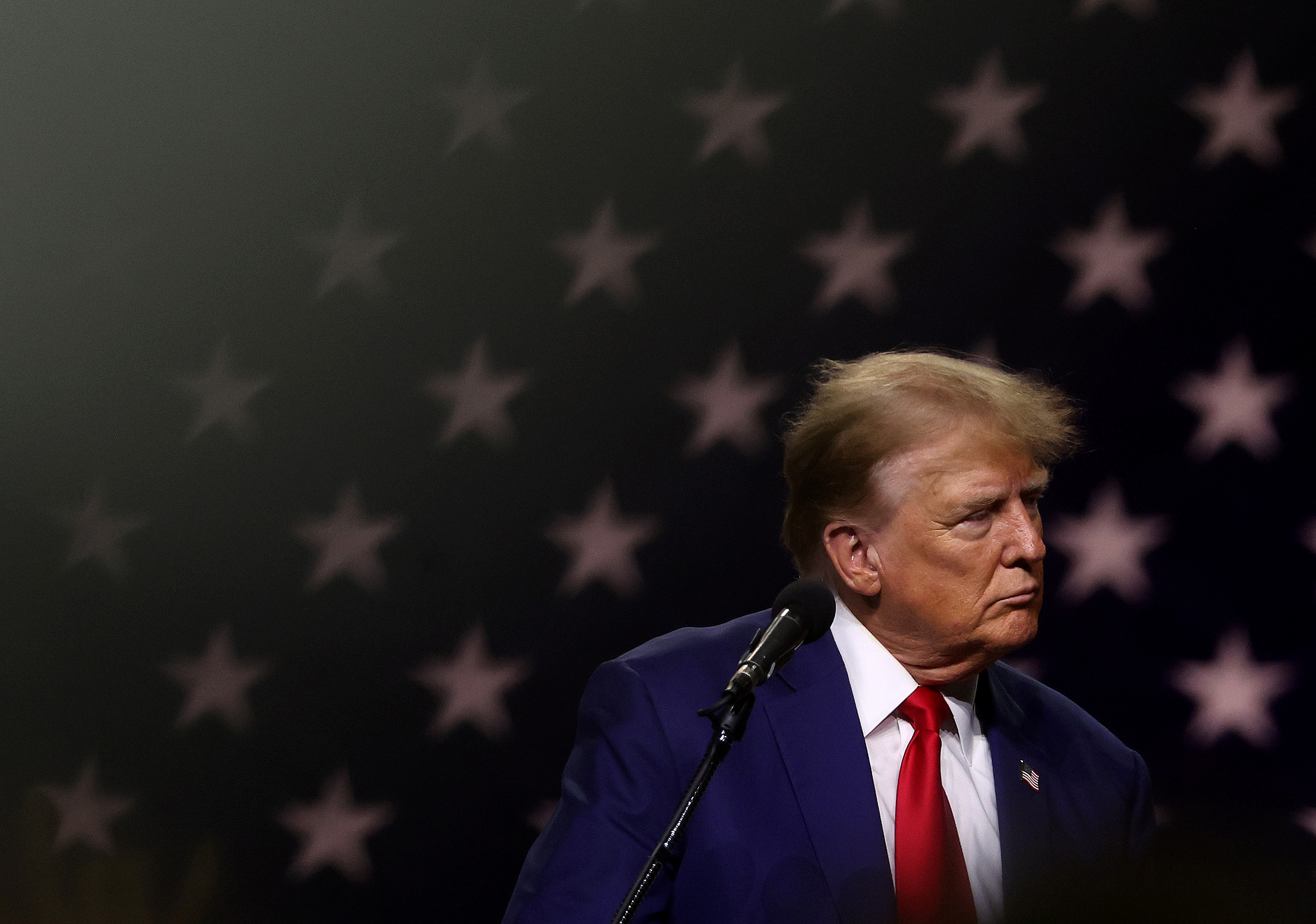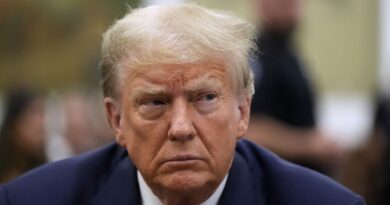Trump asks appeals court to block 2020 election prosecution

Donald Trump on Saturday night urged a federal appeals court to dismiss special counsel Jack Smith’s criminal case against him for seeking to subvert the 2020 election, contending that he is “absolutely immune” from the charges because they related to his official duties as president.
In a
71-page opening brief filed with the D.C. Circuit Court of Appeals, Trump’s attorneys said the prosecution’s charges primarily focus on his efforts to lobby state and federal officials to reverse the election results, actions that they claim were within Trump’s official responsibilities to ensure the 2020 election was conducted fairly.
That argument has fared poorly in other federal courts that have considered it so far, as judges have distinguished between benign lobbying and the alleged criminal scheme to derail the transfer of power based on lies about election fraud. Smith, too, has argued that Trump’s official duties could not possibly include efforts to disenfranchise millions of voters and pressure state officials using knowingly false allegations of election fraud.
But Trump’s attorneys insist all the steps he took to have himself declared the victor in the 2020 presidential contest amounted to acts he took on behalf of the nation rather than himself.
“Under our system of separated powers, the Judicial Branch cannot sit in judgment over a President’s official acts,” Missouri-based lawyer John Sauer and other members of the Trump legal team wrote. “The indictment against President Trump is unlawful and unconstitutional. It must be dismissed.”
Trump’s argument appears to be as much about prevailing in the appeals court as it is about a bid to slow down the case against him. His appeal has already forced an abrupt halt to the criminal proceedings in the District Court, throwing his March 4 trial date there into doubt.
Smith has sought urgent consideration from the courts, contending that there’s an intense public interest in resolving the case in 2024, although he’s shied away from publicly discussing Trump’s current campaign for the GOP presidential nomination. On Friday, the Supreme Court turned down Smith’s plea for the justices to step into the case on an expedited basis, leaving the matter with the D.C. Circuit Court of Appeals, where Smith is similarly pleading for speed.
Unlike at the high court, the three-judge appeals court panel assigned to the case appears to concur with Smith’s claims of urgency, setting an extremely quick series of deadlines that culminate in oral arguments set for Jan. 9. If the judges — George H.W. Bush appointee Karen LeCraft Henderson and Biden appointees J. Michelle Childs and Florence Pan — rule in Smith’s favor, the case could end up back before the justices next month.
In his brief, Trump requests that if the panel rules against him, they delay returning the case to the District Court while he considers whether to seek review from the full appeals court bench or the Supreme Court, a process that could take up to three months. If Smith wins, he is sure to ask the panel to immediately implement its ruling.
While Trump’s brief claims the current case against him must be tossed out in its entirety, his lawyers contend former presidents can be prosecuted criminally for their official acts in one scenario never seen in U.S. history: when a president is impeached and convicted by the Senate.
“Before any single prosecutor can ask a court to sit in judgment of the President’s conduct, Congress must have approved of it by impeaching and convicting the President. That did not happen here, and so President Trump has absolute immunity,” Trump’s attorneys wrote.
Trump’s brief draws heavily on discussions among the founders about the need to protect presidents’ official acts from review by the courts. That, they argued, has resulted in an unbroken history in which no president has ever been charged for conduct related to their official duties. Permitting the case against Trump to go forward, they argued, would lead to a cycle of recrimination and vengeance against future presidents.
The former president commented on the case on Truth Social on Sunday, falling back on his usual assertion that the 2020 election was somehow stolen from him.
“I was doing my duty as President to expose and further investigate a Rigged and Stolen Election. It was my obligation to do so, and the proof found is voluminous and irrefutable,” he wrote.
One obvious impediment to the Trump camp’s arguments is President Gerald Ford’s controversial pardon of former President Richard Nixon over Watergate. Since Nixon was never formally impeached or convicted, the pardon wouldn’t have been necessary under Trump’s theory.
But Trump’s attorneys claim the unusual act of clemency still buttresses their case.
“President Ford’s issuance of a prophylactic pardon to prevent a potentially bitter, protracted, divisive prosecution of a former President … reinforces the political and constitutional tradition against prosecuting Presidents — it does not undermine it,” they wrote.
Chutkan scheduled Trump’s election-related federal trial for March 4, a date that increasingly looks in doubt the longer the immunity question lingers. If the appeals court rules in Trump’s favor, the case would likely be thrown out. And if the judges rule for the government, a trial could proceed, but additional delays are likely since the losing side could ask for review by the full bench of the appeals court and then by the Supreme Court.
Whenever Chutkan gets the case back, she will have to decide whether the original trial date is viable (it may have already passed), or whether a new date is necessary. Assuming Trump maintains his commanding edge in the GOP primary and becomes the GOP presidential nominee, the deeper into 2024 a trial goes, the more complicated it becomes as the general election draws nearer.
Another potential complication: Trump is also slated to go on trial in Florida on May 20 on a second set of charges brought by Smith alleging that Trump refused to return a raft of classified documents at his Mar-a-Lago estate after leaving office. But U.S. District Court Judge Aileen Cannon seems likely to delay the trial’s start date amid protracted consideration of discovery issues in the case. Cannon’s ultimate decision, not expected until March, could be a wild card if Chutkan needs to set a new trial date.


